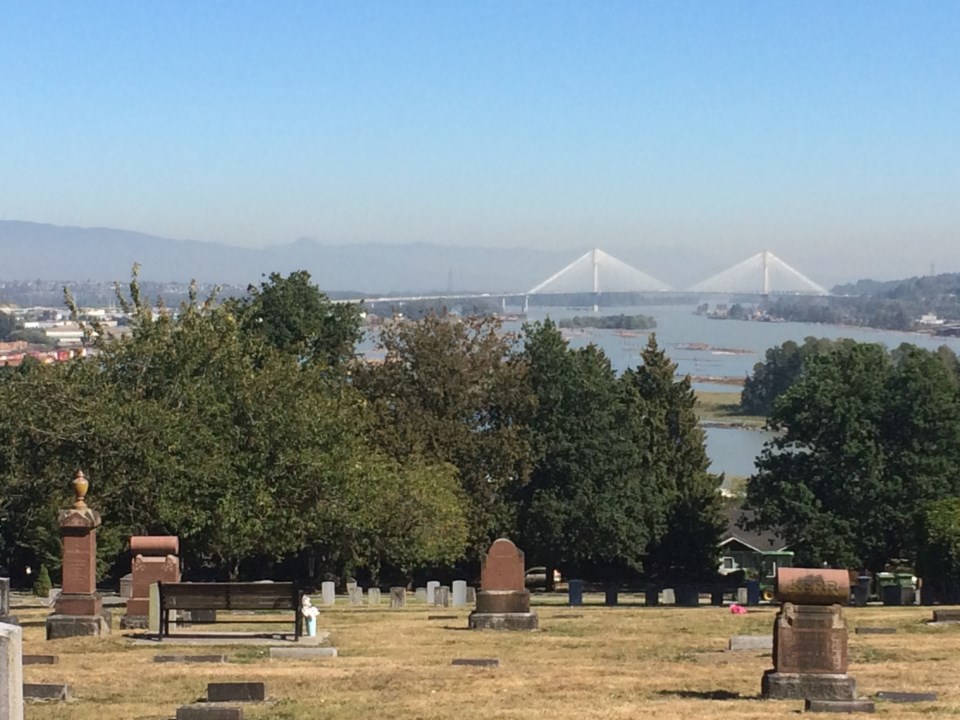There’s a smoky smell in the air and a haze in the distance, but New Westminster’s air still sits low on the health index.
Metro Vancouver is continuing its air quality advisory for Metro Vancouver and the Fraser Valley Regional District because of high concentrations of fine particulate matter, and it’s also issued an additional advisory for ground-level ozone – conditions that are expected to persist through at least tomorrow.
The air in New Westminster currently sits at a health index level of 3 on the region’s air map, which falls into the low-risk zone.
The poor air in the region stems from wildfire smoke from fires in Washington and Oregon, in combination with hot temperatures. New Westminster is currently sitting at a reported 29 C.
A Metro Vancouver press release notes that smoke concentrations may vary widely across the region as winds and temperatures change and as wildfire behaviour changes. Ground-level ozone levels are generally highest from mid-afternoon to early evening.
The air quality advisory means anyone with chronic underlying medical conditions, or acute infections such as COVID-19, should postpone or reduce their outdoor physical activity. Exposure is a particular concern for anyone with underlying conditions such as lung or heart disease, chronic obstructive pulmonary disease (including bronchitis and emphysema), as well as asthma or diabetes. Anyone with a respiratory infection, pregnant women, infants, children, outdoor workers and older adults may also be at higher risk.
The region offers up these tips for reducing your personal health risk:
- Stay cool and drink plenty of water.
- Use symptom management medications, such as inhalers, as needed.
- Continue to manage acute infections or pre-existing chronic medical conditions; if symptoms continue to be bothersome, seek medical attention.
- Stay in cool, air-conditioned environments, especially during afternoon and evening when ozone levels are highest.
- Reduce indoor sources of pollution (such as smoking and vacuuming) and run an air cleaner. Some room air cleaners, such as those with HEPA filters, can help reduce indoor particulate levels.
- Consider taking shelter in air-conditioned buildings that have large indoor volumes and limited entry of outdoor air, but be mindful that space may be limited due to physical distancing guidelines for COVID-19.



